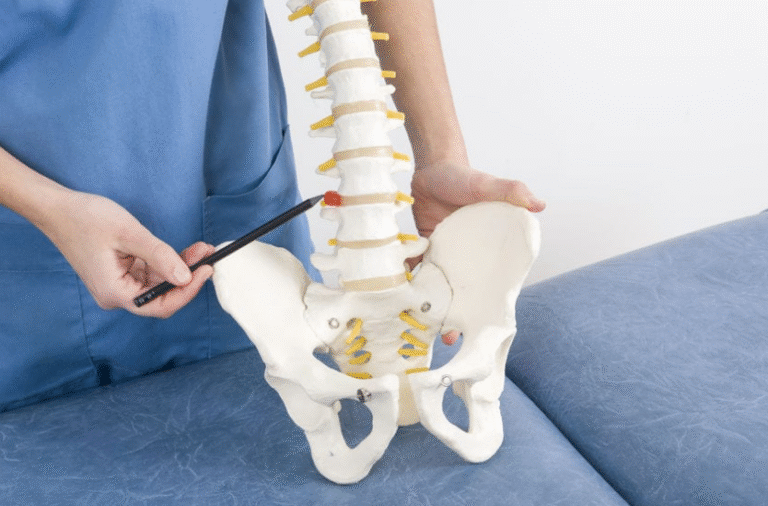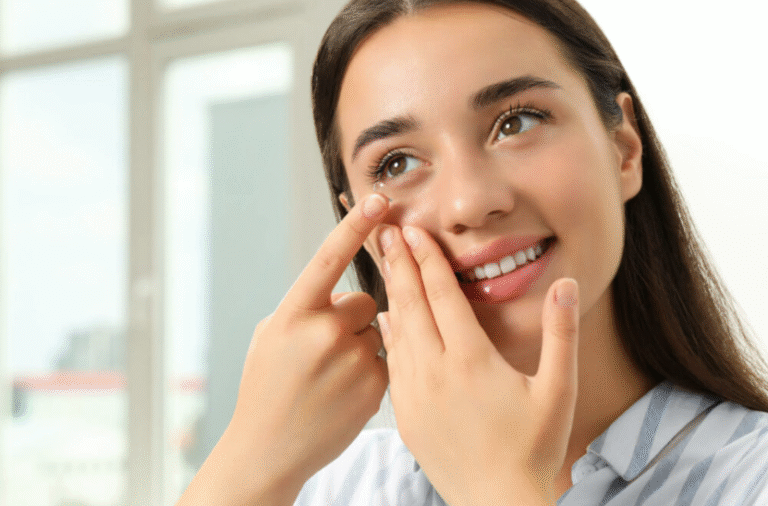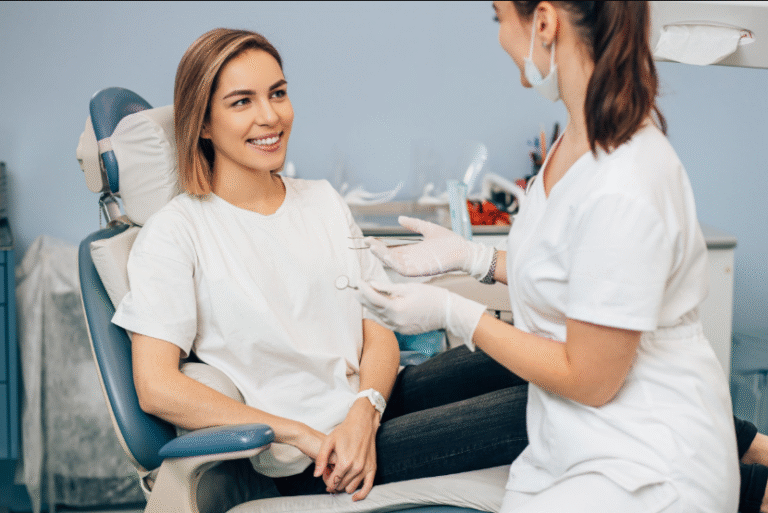Is sleep apnea genetic
Understanding Sleep Apnea’s Roots
When we talk about sleep apnea, it’s natural to wonder where it all comes from. Is it something you’re just born with, or is it purely from your surroundings and habits? The truth is, it’s often a mix of both, and understanding these roots is key to figuring out the condition.
Is Sleep Apnea Inherited?
It’s a question many people ask, especially if they know a parent or sibling who snores loudly or stops breathing during sleep. Yes, there’s a definite link between genetics and sleep apnea. While not every case is directly passed down, your genes can certainly make you more likely to develop it. Think of it like having a predisposition – your body might be wired in a way that makes sleep apnea more probable under certain conditions. This doesn’t mean it’s a done deal, but it’s a factor worth considering, especially if you’re looking at family history.
Genetic Predisposition to Sleep Apnea
So, what does ‘genetic predisposition’ actually mean in this context? It means certain inherited traits can influence your risk. These traits might affect things like the structure of your airway, how your brain controls breathing, or even how your body stores fat. For instance, some people might inherit a narrower throat or a jaw structure that’s more prone to collapsing during sleep. Others might have genetic variations that affect the muscles involved in keeping the airway open. It’s not just one gene, but likely a combination of many, each contributing a small piece to the overall puzzle of your susceptibility.
Family History and Sleep Apnea Risk
Looking at your family tree can offer some clues. If multiple family members have been diagnosed with sleep apnea, your own risk might be higher. This isn’t just about shared environments; it points towards shared genetic factors. However, it’s important to remember that a family history doesn’t guarantee you’ll get sleep apnea, just as not having it in your family doesn’t mean you’re completely in the clear. Lifestyle and environmental factors still play a huge role. For example, if obesity runs in your family, and obesity is a major risk factor for sleep apnea, that could explain some of the familial connection. It’s a complex interplay, and sometimes, the best approach is to be aware of the potential risks and take proactive steps, like discussing options such as oral device therapy in Poway if symptoms arise.
Genes That Influence Sleep Apnea
When we talk about sleep apnea, it’s not just about what happens during sleep; it’s also about what we inherit. Our genes play a pretty big role in how our bodies are built and how they function, and that includes the structures involved in breathing. Certain genetic variations can make someone more likely to develop sleep apnea.
Specific Gene Mutations Linked to Sleep Apnea
Scientists are finding more and more links between specific genes and sleep apnea. These aren’t necessarily single
Environmental and Genetic Interactions
It’s easy to think of sleep apnea as purely a biological issue, something you’re just born with or not. But the truth is, our environment and our daily habits play a huge role, especially when genetics are already nudging us in that direction. Think of it like having a predisposition to something; your genes might make you more likely to develop it, but it often takes a certain trigger from your surroundings or lifestyle to actually make it happen.
Lifestyle Choices and Genetic Susceptibility
So, what kind of lifestyle choices are we talking about? Well, things like smoking, drinking alcohol, and even your sleep position can make a difference. If you have a genetic tendency towards sleep apnea, these habits can really tip the scales. For instance, alcohol relaxes your throat muscles, which is already a problem area for many with sleep apnea. Smoking irritates your airways. Even if you have a family history of sleep apnea, making healthier choices can significantly reduce your personal risk.
How Environment Triggers Genetic Tendencies
Our environment isn’t just about pollution or air quality, though that can play a part too. It’s also about the choices we make daily. If your family has a history of sleep apnea, your genes might be setting you up for issues with airway collapse or breathing control. But if you live a sedentary life, eat poorly, and don’t manage stress, you’re essentially creating an environment that encourages those genetic tendencies to manifest. It’s like planting a seed in fertile ground versus rocky soil; the outcome can be quite different.
Obesity and Its Genetic Connection to Sleep Apnea
Obesity is a big one when it comes to sleep apnea, and it’s got a strong genetic component too. Some people are genetically more prone to gaining weight, and carrying extra weight, especially around the neck, can narrow the airway. This makes obstructive sleep apnea more likely. So, you might have genes that make weight management harder, and then that extra weight directly contributes to sleep apnea. It’s a bit of a double whammy. For those in the Poway area looking for solutions, understanding this link is key. Many find that addressing weight through diet and exercise, alongside treatments like oral device therapy in Poway, can make a world of difference.
Types of Sleep Apnea and Genetics
When we talk about sleep apnea, it’s not just one thing. There are different types, and genetics can play a role in each. It’s pretty interesting how our genes might set the stage for these breathing disruptions during sleep.
Obstructive Sleep Apnea Genetic Links
Obstructive Sleep Apnea (OSA) is the most common kind. It happens when your airway collapses or gets blocked during sleep. While lifestyle factors like obesity are big players, research suggests a genetic component too. Some people might inherit a certain facial structure, like a smaller jaw or a thicker neck, that makes them more prone to OSA. These physical traits, influenced by your genes, can narrow your airway. Think about it – if your parents or siblings have OSA, your risk might be higher, not just because of shared habits, but because you might share similar genetic predispositions. It’s like getting a blueprint that makes your airway a bit more likely to get squished when you relax at night.
Central Sleep Apnea and Genetic Factors
Central Sleep Apnea (CSA) is a bit different. Instead of a physical blockage, it’s about your brain not sending the right signals to the muscles that control breathing. This type is less common than OSA, but genetics can still be involved. Certain conditions that can lead to CSA, like heart failure or stroke, can have genetic links themselves. Also, some rare forms of CSA are directly caused by specific gene mutations. These mutations can affect how the brainstem, the part of your brain that manages breathing, functions. So, while OSA might be more about the physical plumbing, CSA can sometimes be about the control system having a glitch, and genes can influence that control system.
Pediatric Sleep Apnea and Heredity
It’s not just adults who get sleep apnea; kids can too. And yes, heredity can be a factor here as well. If a child has OSA, it’s worth looking into family history. Children might inherit a tendency towards enlarged tonsils or adenoids, or specific craniofacial features that contribute to airway obstruction. Sometimes, pediatric sleep apnea is linked to other genetic conditions like Down syndrome or certain genetic syndromes that affect facial development. Understanding the genetic side can help doctors identify kids at higher risk and get them the right help sooner. For families in the Poway area dealing with a child’s sleep issues, knowing about these potential genetic links can be a starting point for discussions with healthcare providers, perhaps even exploring options like oral device therapy in Poway if it’s deemed appropriate later on.
Genetic Testing and Sleep Apnea
So, you’re wondering if genetic tests can actually tell you if you’re going to get sleep apnea. It’s a pretty common question, especially when you hear about how genetics can play a role. While there isn’t a single gene test that can definitively say ‘yes’ or ‘no’ to sleep apnea, genetic screening can offer some clues about your risk. Think of it like this: your genes might load the gun, but environmental factors often pull the trigger. For instance, certain genetic variations can affect how your jaw and airway are structured, making you more prone to blockages during sleep. Others might influence how your body regulates breathing.
Can Genetic Tests Predict Sleep Apnea?
Right now, predicting sleep apnea solely through genetic testing is tricky. Scientists are still identifying all the genes involved and how they interact. What we do know is that having a family history of sleep apnea increases your chances. Genetic tests might look for specific markers associated with conditions that often go hand-in-hand with sleep apnea, like obesity or certain facial structures. However, these are risk factors, not guarantees.
Limitations of Genetic Screening
It’s important to understand the limits. Genetic screening for sleep apnea isn’t like a simple blood test for cholesterol. It’s complex, and the results often need careful interpretation.
- Incomplete Picture: Current tests don’t cover every gene that might be involved.
- Environmental Influence: Lifestyle, weight, and even sleep position play huge roles that genetics alone can’t account for.
- Varied Severity: Even if you have a genetic predisposition, the severity of sleep apnea can differ greatly.
Consulting Specialists for Genetic Insights
If you’re really interested in exploring the genetic side of your sleep apnea risk, talking to a doctor or a genetic counselor is the way to go. They can help you understand what genetic information might be available, what it means, and whether it’s even relevant for your situation. They can also discuss how this information fits in with other risk factors and potential treatments, like exploring options for oral device therapy in Poway if that’s something you’re considering. Remember, understanding your risk is just one piece of the puzzle when it comes to managing sleep apnea, whether you’re in Poway or anywhere else.
Managing Sleep Apnea: Beyond Genetics
While genetics can play a role in sleep apnea, it’s definitely not the whole story. Many factors outside of our DNA influence whether we develop or manage this condition. Focusing on what we can control is key to getting a good night’s sleep.
The Role of Lifestyle Modifications
Making changes to your daily habits can have a big impact on sleep apnea. Things like losing weight if you’re overweight, cutting back on alcohol, and quitting smoking are often recommended. Even small changes can make a difference. For instance, avoiding sedatives before bed can help keep your airway open.
- Weight Management: Losing even a small amount of weight can reduce the severity of sleep apnea.
- Alcohol and Sedatives: Limiting or avoiding these substances, especially close to bedtime, is important.
- Smoking Cessation: Quitting smoking can decrease inflammation in the airways.
- Sleep Position: Sleeping on your side instead of your back can help prevent airway collapse.
Exploring Treatment Options
There are several ways to treat sleep apnea, and what works best depends on the individual. Continuous Positive Airway Pressure (CPAP) machines are a common and effective treatment. They work by keeping your airway open with a gentle stream of air while you sleep. Other options include surgery or different types of breathing devices.
It’s important to work with a doctor to figure out the best treatment plan. They can help diagnose the severity of your sleep apnea and recommend the most suitable approach for your specific needs.
Considering Oral Device Therapy in Poway
For some people, especially those with milder forms of sleep apnea or who can’t tolerate CPAP, oral appliance therapy is a great alternative. These custom-made devices, often called mandibular advancement devices, look a bit like mouthguards. They work by repositioning your jaw and tongue forward, which helps keep your airway open during sleep. If you’re in the Poway area and looking for solutions, exploring oral device therapy in Poway could be a good step. It’s a comfortable and discreet option that many find very effective for managing sleep apnea. Finding the right treatment, whether it’s CPAP, an oral device, or lifestyle changes, is what really matters for improving your health and well-being. Remember, if you’re dealing with sleep apnea in Poway, there are options available to help you breathe easier and sleep better.
So, Is Sleep Apnea Genetic?
After looking into it, it seems like sleep apnea isn’t just one thing. While it’s not like inheriting your mom’s eye color, there’s definitely a family connection for many people. If you have a history of sleep apnea in your family, it might be worth paying extra attention to your own sleep habits and any symptoms you might be experiencing. Talking to your doctor about your family history is a good idea. They can help figure out if you’re at higher risk and what steps you can take to stay healthy. It’s not a simple yes or no answer, but knowing the possibilities can help you take care of yourself better.






